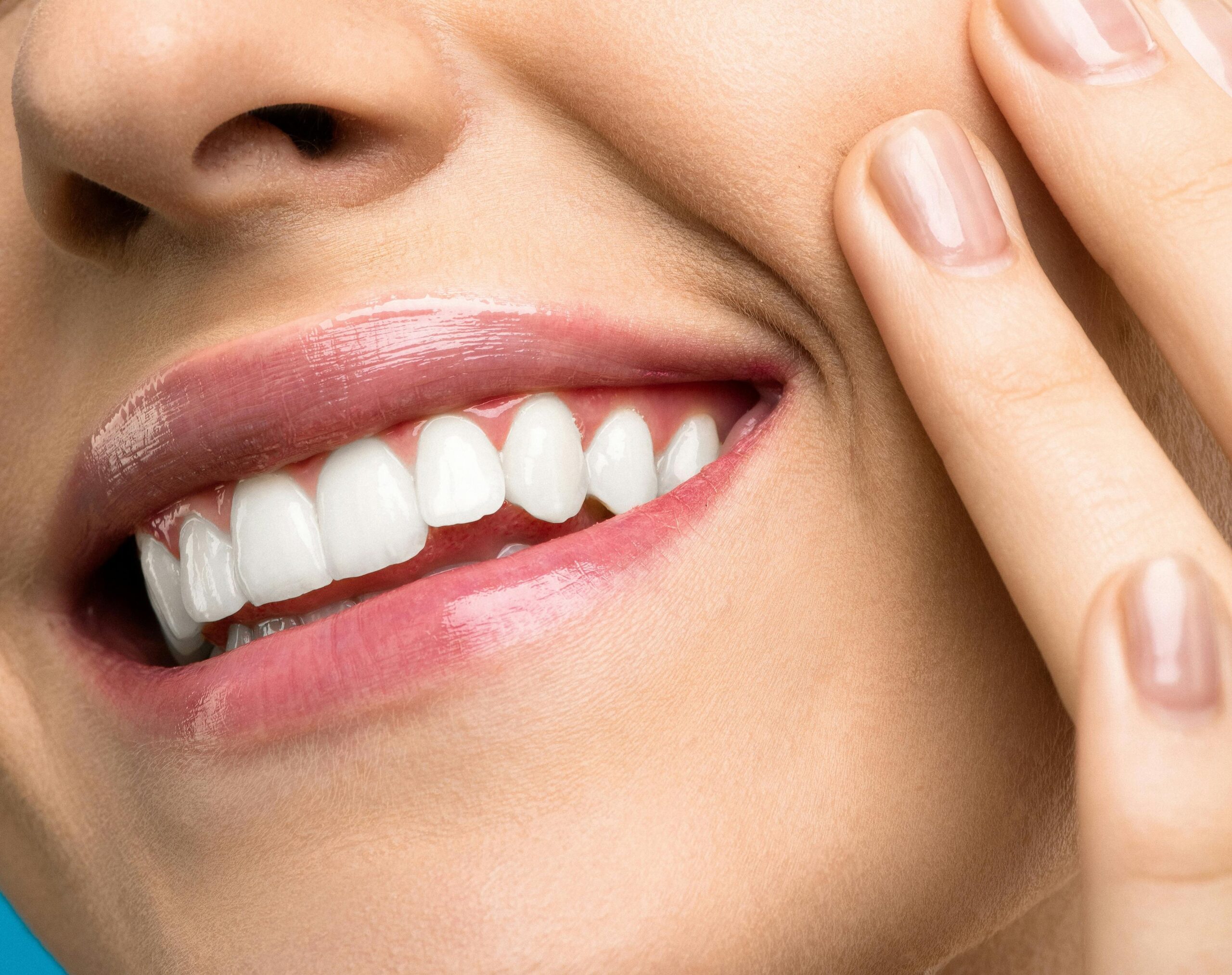Mouth Ulcer Relief: The Ultimate Toothpaste Guide
Mouth ulcers can be a real pain, quite literally. These small, painful sores inside the mouth can make everyday activities like eating, drinking, and even talking uncomfortable. For many people, finding effective mouth ulcer treatment becomes a top priority. While there are various remedies available, one surprising solution might be sitting right on your bathroom shelf: toothpaste.

Choosing the right toothpaste can play a big part in managing mouth ulcers. Some ingredients, like sodium lauryl sulfate (SLS), might actually make canker sores worse, while others can help with healing and reduce irritation. This guide will look into the connection between toothpaste and mouth ulcers, offer tips to pick the best mouth ulcer toothpaste for ulcer relief, and share some extra advice to deal with these pesky sores. Whether you’re dealing with stress-related ulcers or looking to avoid allergic reactions, this information will help you take care of your oral health more effectively.
Understanding Mouth Ulcers
Mouth ulcers, also known as canker sores or aphthous ulcers, are round or oval sores that appear inside the mouth. They are white, red, yellow, or grey in colour and often have a reddish, slightly raised border. Mouth ulcers should not be confused with cold sores, which are small blisters that develop on the lips or around the mouth.
Common Causes
In many cases, the exact cause of mouth ulcers is unclear. However, some common triggers include:
- Accidental biting of the cheek or tongue, poorly fitting dentures, rough fillings, or sharp teeth
- Cuts or burns from hard foods or hot drinks
- Food intolerances or allergies
- Damaging gums with a toothbrush or irritating toothpaste causes mouth ulcers
- Stress, anxiety, hormonal changes (e.g., during pregnancy), or stopping smoking
- Vitamin deficiencies (iron, zinc, folic acid, vitamin B, or vitamin D)
- Certain medications like NSAIDs, beta-blockers, or nicorandil
Symptoms
The main symptom of mouth ulcers is pain . Other symptoms may include:
- Tingling, burning, or roughness in the affected area before the ulcer appears
- Increased pain when eating acidic, spicy, or rough foods
- Discomfort during chewing or speaking
Risk Factors
While anyone can develop mouth ulcers, certain factors may increase the risk:
- Genetics (around 40% of people with recurrent mouth ulcers report a family history)
- Medical conditions like Crohn’s disease, coeliac disease, reactive arthritis, weakened immune system, Behçet’s disease, hand, foot, and mouth disease, or oral lichen planus
- Chemotherapy or radiotherapy treatment (can cause a condition called mucositis)
Most mouth ulcers are harmless and clear up within 1-2 weeks without treatment. However, if an ulcer lasts longer than 3 weeks, it is advisable to see a dentist or doctor .
The Role of Toothpaste in Mouth Ulcers
SLS and Its Effects
Sodium lauryl sulfate (SLS) in toothpaste is a detergent used to create the foamy feeling associated with cleaning teeth . Unfortunately, SLS can cause skin irritation and aggressively irritate mouth ulcers. Although not everyone reacts to SLS toothpaste, if you notice an increase in mouth ulcers, chapped lips, or skin irritation from your toothpaste, check if it contains SLS. If so, switch to an SLS-free toothpaste brand .
SLS can strip the protective layer of the oral mucosa, exposing the buccal mucosa and gingiva to irritants. Due to its affinity for mucosa proteins, it may also denature them. Studies show that the oral mucosa is more sensitive to low SLS concentrations than skin. Oral epithelium shedding, swelling, and ulceration have also been observed with SLS use.
Other Potential Irritants
Apart from SLS in toothpaste, other ingredients may also contribute to mouth ulcer formation or aggravation. For instance, nearly every toothpaste contains surfactants to create foam and loosen debris, but these can distort taste and potentially irritate delicate oral tissues . Patients with a delicate oral delicate lining, aphthous ulcers, dry mouth, pregnant women, and young children may benefit from using gentler, toothpaste without SLS formulations.
Benefits of SLS-Free Toothpaste
Several studies have investigated the effects of SLS-free toothpaste on mouth ulcers. A 2019 systematic review found that SLS-free toothpastes reduced the number and duration of mouth ulcers . In one double-blind trial, participants using toothpaste without sodium lauryl sulfate self-reported less pain, and their ulcers healed slightly quicker, although the number of ulcers and episodes did not change significantly.
Another meta-analysis of four double-blinded randomised controlled trials concluded that individuals with recurrent aphthous stomatitis (RAS) who used non-SLS toothpaste might experience a reduction in the number of ulcers, their duration, the number of episodes, and ulcer pain.
While the evidence is mixed, switching to an SLS-free dental care regimen is considered an effective way to control frequent mouth ulcers, as advised by NHS guidance. SLS-free dental products may be particularly beneficial for those prone to recurrent mouth ulcers or with sensitive gums.
Choosing the Right Toothpaste
Key Ingredients to Look For and what to avoid
When selecting a toothpaste, it’s crucial to check the ingredient list and avoid certain potentially harmful components. Triclosan, an antibacterial agent previously used in toothpaste, has been linked to thyroid disruption and antibiotic resistance, leading to its discontinuation in the United States as of 2019. Microbeads, once used as mild abrasives, have been phased out due to their negative environmental impact.
Additionally, activated charcoal, while effective for surface stain removal, can wear down tooth enamel, cause sensitivity, and stain artificial teeth with regular use. Baking soda, another abrasive ingredient, can eventually erode enamel and disrupt the mouth’s pH balance. Lastly, sodium lauryl sulfate toothpaste, a foaming agent, can irritate mouth ulcers, chapped lips, and sensitive skin.
Natural vs. Commercial Options
Natural and organic toothpaste offer an alternative to commercial varieties by excluding synthetic ingredients like preservatives, artificial sweeteners, colours, and fragrances. Instead, they often contain plant-based extracts like coconut oil, clove oil, papaya leaf extract, chamomile, neem, aloe vera, and calendula, known for their medicinal properties. Some also include essential oils like Myrrh and menthol for added benefits.
While commercial toothpastes typically contain sodium fluoride to prevent cavities, natural varieties are fluoride-free toothpaste, appealing to those concerned about potential adverse effects. However, it’s important to note that fluoride is generally considered safe and effective for cavity prevention when used as directed.
Fluoride Considerations
Fluoride is a beneficial ingredient for preventing cavities, but excessive ingestion can lead to potential issues like bone fluorosis (at high doses) and dental fluorosis (at moderate doses) during tooth development. For this reason, some individuals may prefer fluoride-free natural toothpastes, particularly for young children or those prone to swallowing toothpaste.
However, it’s essential to weigh the benefits and risks carefully, as fluoride has been proven effective in reducing cavities when used appropriately. Those prone to recurrent mouth ulcers or with sensitive gums may benefit from using gentle, SLS-free oral hygiene formulations, with or without fluoride.
The Role of Enzymes in Oral Health
Enzymes play a crucial role in maintaining oral health. They help break down food particles, reducing the buildup of plaque and bacteria that can lead to dental issues like tartar and bleeding gums. Enzyme-based toothpastes harness the power of natural enzymes to support a healthy mouth environment and can be particularly beneficial for those suffering from mouth ulcers.
Benefits of Enzyme-Based Toothpaste for Mouth Ulcers
- Gentle Cleaning: Enzyme-based toothpastes provide a gentle cleaning action without the harsh abrasives of many traditional toothpastes. This is particularly important for individuals with mouth ulcers, as harsh abrasives can further irritate the sensitive tissues.
- Reduced Inflammation: Enzymes like papain (from papaya) and bromelain (from pineapple) have natural anti-inflammatory properties that can help reduce swelling and discomfort associated with mouth ulcers.
- Enhanced Healing: Enzyme-based toothpaste can promote the healing of mouth ulcers by maintaining a balanced oral environment and reducing bacterial load. This can help ulcers heal faster and prevent new ones from forming.
- Safe and Natural: Enzyme-based toothpastes often contain natural ingredients, making them a safer choice for individuals with sensitivities or allergies to certain chemicals found in conventional toothpastes.
Enzyme-Based Toothpaste: A Solution for Mouth Ulcer Relief
Enzyme-based toothpaste, like Curaprox ENZYCAL, is an excellent choice for those seeking relief from mouth ulcers. This non-foaming toothpaste utilises natural enzymes to gently clean the teeth and gums, reduce inflammation, and promote healing. It has an RDA 30 rating, making it very gentle on tooth enamel. By incorporating enzyme-based toothpaste into your daily SLS-free oral hygiene routine, you can manage mouth ulcers more effectively and maintain overall oral health.
Additional Tips for Mouth Ulcer Relief
During the acute inflammation phase of mouth ulcers, specific dietary changes can help reduce irritation and promote healing:
Dietary Changes
- Avoid crispy, hard foods like bread rolls or crispbread, as they can further irritate the inflamed mucous membranes.
- Avoid very acidic, spicy, or salty foods, as well as fizzy drinks or alcohol, which can be unpleasant for mouth ulcers.
- Choose soft, bland foods like soups, stews with tender meats, instant oatmeal, pancakes, mashed potatoes, rice, custard, pudding, ice cream, milkshakes, applesauce, and yoghurt.
- Prepare foods by cutting them into small pieces, pureeing, cooking until soft and tender, and serving with gravies, broths, or sauces.
- To combat weight loss, opt for good sources of protein, such as ground meats, eggs, cottage cheese, yoghurt, custard, beans, lentils, and smoothies.
- Stay hydrated by drinking at least 8-10 glasses of water daily, sipping cool drinks between meals, and using a straw to push liquids past mouth sores.
Proper oral hygiene practices can also aid in preventing further irritation and promoting healing:
Oral Hygiene Practices
- Brush teeth gently with a soft-bristled toothbrush to prevent injuring gums and increasing the risk of new canker sores.
- Use interdental brushes or dental floss to clean between teeth, as your dentist recommends.
- Avoid mouthwashes containing alcohol, as they can worsen pain.
- Rinse your mouth several times a day with a baking soda and water solution or salt mouthwash to remove food and promote healing.
- Avoid cigarettes, cigars, and tobacco products.
- Consult your doctor about special mouthwashes and sprays that can numb the mouth and throat.
Various home remedies can also provide relief and aid in healing mouth ulcers:
Home Remedies
- Apply honey, which has antimicrobial properties and can aid in repairing open wounds quickly.
- Make a paste with baking soda and water, apply it to the ulcer, and let it dry before rinsing. Baking soda neutralizes acid and reduces pain.
- Apply coconut oil to the ulcer, as it has antimicrobial, anti-inflammatory, and analgesic properties.
- Gargle with a salt mouthwash solution, as salt has antiseptic properties that can soothe pain and discomfort.
- Apply toothpaste for sensitive mouth to the ulcer using a Q-tip, as it contains antimicrobial properties that can reduce swelling and pain .
- Drink freshly squeezed orange juice, as vitamin C can prevent and aid in healing mouth ulcers .
- Apply clove oil directly to the ulcer, as it contains eugenol and antimicrobial oils that help with oral issues, pain, and inflammation.
- Gargle with coconut milk three to four times a day for a soothing effect and reduced pain .
- Apply a paste made with turmeric powder and water. Turmeric has antiseptic, antimicrobial, and anti-inflammatory properties.
- Dab a cut garlic clove on the ulcer for a minute or two. Garlic’s allicin compound has antibacterial botanical oils.
- Drink boiled and pureed cabbage juice, as cabbage possesses anti-inflammatory properties that can reduce mouth pain .
- Rinse your mouth with a solution of apple cider vinegar and warm water. Apple cider vinegar has antibacterial properties that can speed up recovery.
For more information on the benefits of enzyme-based toothpaste and how it can help with mouth ulcer relief, visit Enzim Toothpaste.
.


